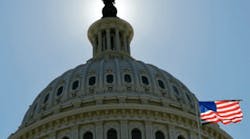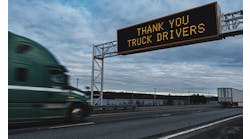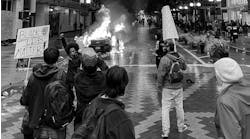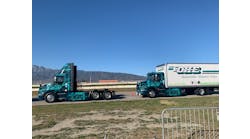Despite fresh talk on infrastructure, ballot-measure failures show it's an uphill battle
Even before all the ballots across the country are counted, talk of a possible bipartisan infrastructure bill has became a popular topic.
President Trump spoke of the possibility of working with the new Democratic majority in the House, and Rep. Peter DeFazio (D-OR), the likely chairman of the Transportation and Infrastructure Committee, said he believes Trump's comment was sincere.
Talking up infrastructure has become commonplace after national elections. That goes back multiple presidents. Two years ago, there was much optimism in infrastructure circles following Trump’s victory, combined with Republicans controlling both houses of Congress.
While tax legislation was approved in 2017, there was no significant progress on infrastructure, and experts at the Eno Center for Transportation said it could be an uphill battle to get it done ahead of the 2020 presidential election.
Overall, the Eno experts said these ballot measures are gaining in popularity at the state and local level to overcome the constant federal gridlock, which is likely to continue.
There were 314 measures across the country, with many of them localized and required by law (especially in Michigan and Ohio). Of the estimated $50 billion in transport-related measures on ballots, about 59% focused on roads, 22% focused on transit and 9% involved bicycle/pedestrian projects.
There is also a growing emphasis on multimodal projects, and those are also finding more support by voters across the country, Davis said.




